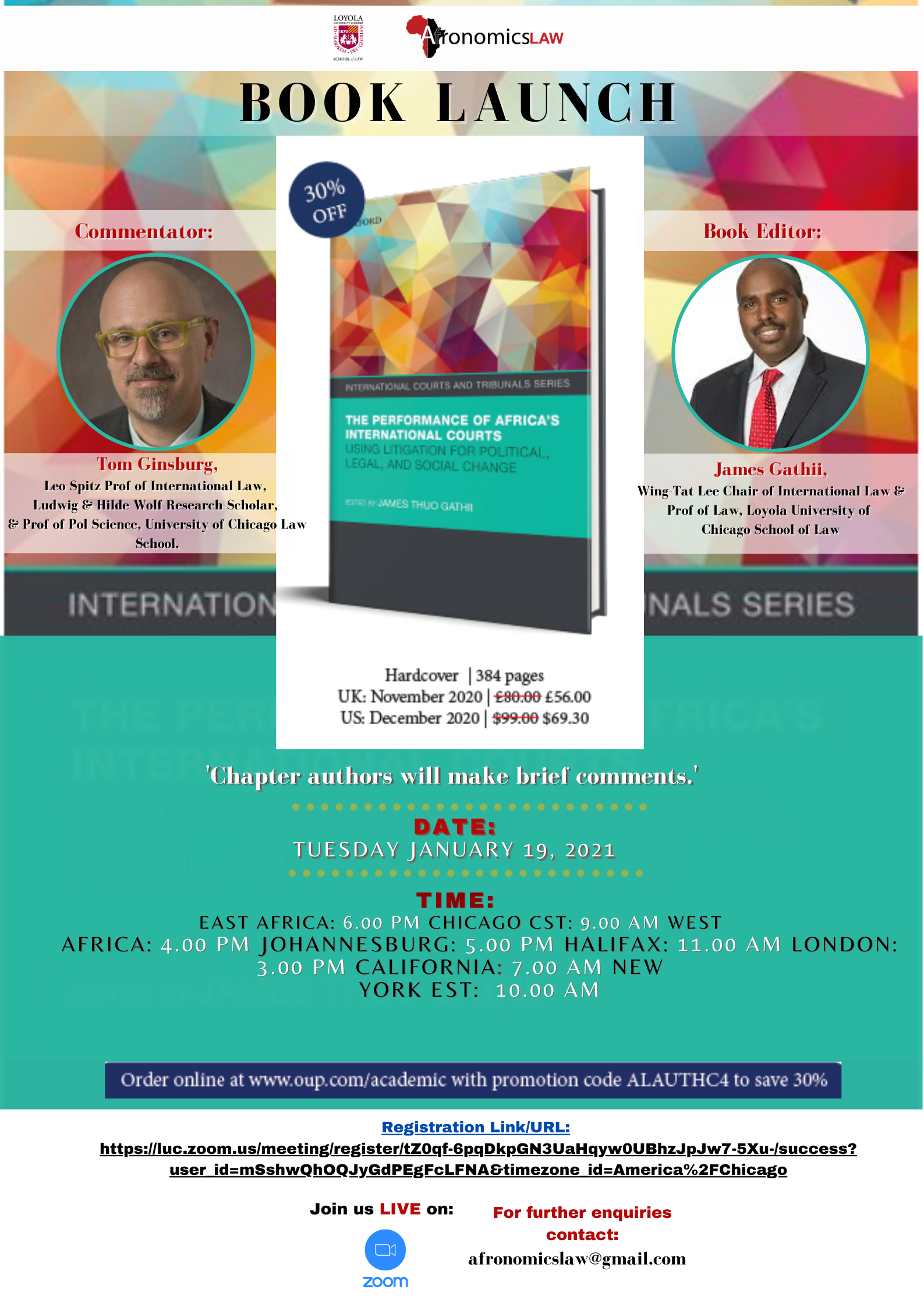Time: 4pm (West Africa); 5pm (Johannesburg); 10am (Washington DC); 9am (Chicago)
Register Here: Zoom Link
The performance of international courts has traditionally been judged against criteria of compliance and effectiveness. Whilst these are clearly desirable objectives for litigants before Africa's international courts, this book shows that we must look beyond these criteria to fully appreciate the impact of these courts. This book shows how litigants use their participation in international litigation to achieve other objectives: to amplify political disputes with their governments, to build their movement, to educate the public about their cause, and to challenge the status quo.
Chapters in this collection show how these courts act as coordination points for opposition political parties to name and shame dominant parties for violation of their organizational rights. Others demonstrate how Africa's international courts serve as transitional justice mechanisms in which truth telling about ongoing conflict and authoritarian governance receives significant attention. This attention serves as a platform to galvanize resistance against continued authoritarian rule, especially from outside the conflict countries. Ultimately, the book shows that these courts must be judged against new and broader criteria, and understood as increasingly important venues for waging political, social, environmental, and legal struggles.
- A groundbreaking collection which discusses every international court in Africa
- Provides original analysis of how opposition parties and activists use Africa's international courts to build movements and challenge the status quo
- Expands our understanding of the impact of these courts by focussing on their applicants, rather than on governments and judges
- Introduction of the Book Project by James Thuo Gathii
- Comments on the Book by Professor Tom Ginsburg
- Brief Comments by Chapter Authors
- Question and Answer
Table of Contents
Introduction, James Gathii
1. International Courts as Coordination Devices for Opposition Parties: The Case of the East Court of Justice, James Gathii
2. Sub-Regional Courts as Transitional Justice Mechanisms: The Case of the East African Court of Justice in Burundi, Andrew Heinrich
3. The ECOWAS Court as a (Promising) Resource for Pro-Poor Activist Forces: Sovereign Hurdles, Brainy Relays, and "Flipped Strategic Social Constructivism", Obiora C. Okafor and Okechukwu J. Effoduh
4. Towards an Analysis of the Mega-Political Jurisprudence of the ECOWAS Community Court of Justice,
5. African Sub-regional Courts as Back-Up Custodians of Constitutional Justice: Beyond the Compliance Question, Solomon Ebobrah and Victor Lando
6. The African Court of Human and Peoples' Rights as an Opportunity Structure, James Gathii and Jacquelene Mwangi
7. Backlash Against International Courts in West, East and Southern Africa: Causes and Consequences, Karen Alter, James Gathii, and Laurence Helfer
8. Reference Guide to Africa's International Courts, James Gathii and Harrison Otieno
